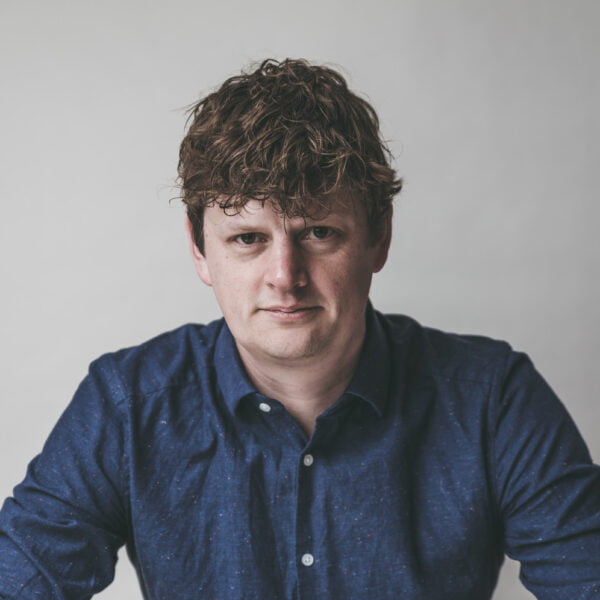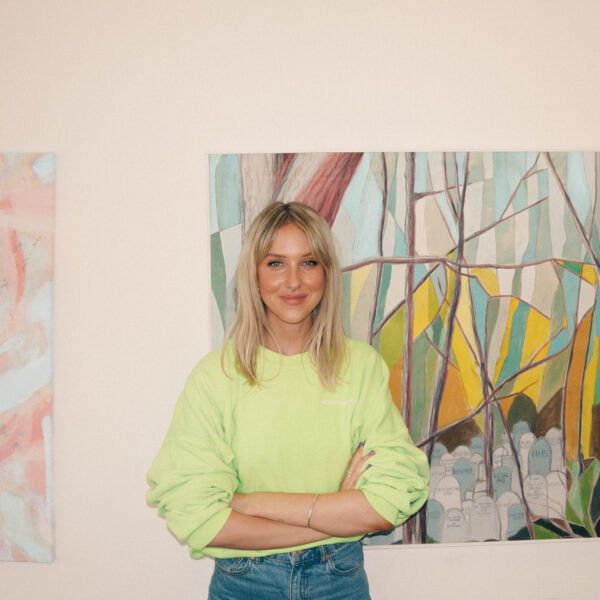
Natasha Collie
Senior Brand Marketing Manager at Penguin Random House UK
At the start of the year, Ladybird Books approached Sonder & Tell with a dream brief. In 2021, a year that’s been particularly challenging for...
In conversation with
freelance energy and culture journalist

Few journalists veer as smoothly from writing about renewable energy and sustainability to make-up and books as Olivia Gagan. Previously a full-time business journalist for trade titles, Olivia recently made the leap to go freelance which has seen her cast her net wider to long form feature articles on relationships, about mental health, the social and sexual politics of the beauty industry. Today she writes for titles including Raconteur, The New York Times, Violet Book and Refinery29 and reads just about anything she can get her hands on, which surely feeds into her broad range of work. I used to be very apologetic about having all these different things I wanted to write about, and for having a bit of a scattergun portfolio,” says Olivia, “but now I’m just like, well, why not?”
I read everything. I’d read the back of cereal packets, whatever was available. I used to max out my library card each week – you could borrow up to 10 books, I think, and it would be everything from Enid Blyton to The Saddle Club to Doctor Faustus, which was ridiculous as a child – it’s an Elizabethan play, I had no idea what was going on in it. In my teens it was a whole lot of F Scott Fitzgerald. His letters, his short stories, the works. Something about his writing when I was that age really got to me – how lyrical and compact and sad it is.

I distinctly remember when I realised you could do it for a living. This isn’t a romantic story: my epiphany came in Asda. I was about 14, skulking round the magazine aisle while my nan did her shopping, when I picked up a copy of ELLE. Jennifer Aniston was on the cover. It felt so heavy, just hundreds of pages of words and images, and it dawned on me that someone, somewhere, was getting paid to make this every month. And that was it. The next summer I managed to wangle my way into an internship at the (now defunct) ELLE Girl.
I followed a very traditional journalism route. I started on student newspapers, then local newspapers, then I moved to business titles and on to nationals. For years I wrote news stories that were assigned to me, but the older I get, it’s more creative, longform writing I’m drawn to. I love writing about relationships, about mental health, the social and sexual politics of makeup and the beauty industry, about renewables and energy policy, and sustainability in the fashion industry. I write profiles as well, and I relish those. It feels like a privilege to be allowed to sit down with a stranger and to then try and write something about them and their life which feels interesting and true. I used to be very apologetic about having all these different things I wanted to write about, and for having a bit of a scattergun portfolio – but now I’m just like, well, why not? I want to write about business and I want to interview people and I want to write about love and relationships. I also started messing around with screenwriting recently, which came out of the blue.


Ones which trust you and give you free rein. I think the clever companies are increasingly realising that if you hire a journalist to write something for you, they tend to ask awkward questions, they don’t like being told what to do, and that desire to not just toe the brand line can actually be to their benefit. That said, I would never try and pretend a piece of writing for a brand is journalism. There’s a difference.
“I think the clever companies are increasingly realising that if you hire a journalist to write something for you, they tend to ask awkward questions, they don’t like being told what to do, and that desire to not just toe the brand line can actually be to their benefit”
For features, I think the good stories are often structured as a journey, that take the reader along for the ride, which highlight the human cost, or the human gain, that tie the story to the way we live. For news, which needs to be shorter and punchier, I think stories which show how choosing the more ethical or low-carbon route often just makes good business sense can be compelling. A lot of people scanning headlines won’t care about the ethics of a company – but they will care about the amount of money it makes.
I loved The Descent of Man by Grayson Perry. It explores society’s very narrow, rigid expectations of what being a man is. There’s two sentences in it that have been stuck in my head ever since I read it last year – “When I asked Jerry Hyde, a psychotherapist, what masculinity is, his unhesitating response was ‘tenderness’. A curious answer, perhaps, but gentle men do possess a quality of tenderness that is very masculine.” The Beauty Myth by Naomi Wolf really opened my eyes to the way images of women’s bodies can be used against them. Bird by Bird by Anne Lamott is a great guide to building the confidence to write. I’m reading You Play The Girl by Carina Chocano at the moment, which looks at how representations of women in film and TV affect real life.

The Violet Book for the photography and the interviews and its love of books and film and TV made by women (full disclosure: I am doing some work for it!). I always look at The Gentlewoman, it has a really distinctive tone and this innate wit and intelligence which comes through the pages. I’m really excited to get a copy of More Or Less – it’s a new fashion magazine by a former Vogue editor, Jaime Perlman, that promotes creativity and sustainability over consumption. I’ll read anything though. I think it’s important to try and soak up a big variety of words and styles and outlooks, that’s how you form your own tastes.

Olivia's Storylist

Senior Brand Marketing Manager at Penguin Random House UK
At the start of the year, Ladybird Books approached Sonder & Tell with a dream brief. In 2021, a year that’s been particularly challenging for...

Founder Of Simple Politics
Talking about serious issues doesn’t mean defaulting into a serious tone of voice, or using complicated language. If anything, accessibility, clarity and a touch of...

Brand & Community Manager at Homethings
Creating a tone of voice from scratch can be challenging. But a blank slate to work from also mean there’s room for something a bit...

Photographer

Editor-in-Chief at XXY Magazine, freelance journalist